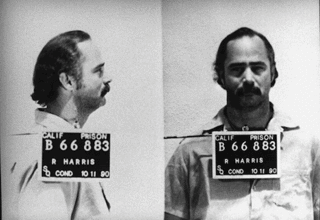Related Research Articles

Arapahoe County is a county located in the U.S. state of Colorado. As of the 2020 census, its population was 655,070, making it the third-most populous county in Colorado. The county seat is Littleton, and the most populous city is Aurora. The county was named for the Arapaho Native American tribe, who once lived in the region.

The City of Cherry Hills Village is a home rule municipality located in Arapahoe County, Colorado, United States. The city population was 6,442 at the 2020 United States Census. Cherry Hills Village is a part of the Denver–Aurora–Lakewood, CO Metropolitan Statistical Area and the Front Range Urban Corridor.

The City of Greenwood Village is a home rule municipality located in Arapahoe County, Colorado, United States. The city population was 15,691 at the 2020 United States Census. Greenwood Village is a part of the Denver–Aurora–Lakewood, CO Metropolitan Statistical Area and the Front Range Urban Corridor.
Mapp v. Ohio, 367 U.S. 643 (1961), was a landmark decision of the U.S. Supreme Court in which the Court ruled that the exclusionary rule, which prevents prosecutors from using evidence in court that was obtained by violating the 4th Amendment to the U.S. Constitution, applies not only to the federal government but also to the state governments. The Supreme Court accomplished this by use of a principle known as selective incorporation.

Robert Alton Harris was an American car thief, burglar, kidnapper and murderer who was executed at San Quentin State Prison in 1992 for the 1978 murders of two teenage boys in San Diego. His execution was the first in the state of California since 1967.
California v. Greenwood, 486 U.S. 35 (1988), was a case in which the Supreme Court of the United States held that the Fourth Amendment does not prohibit the warrantless search and seizure of garbage left for collection outside the curtilage of a home.
In tort common law, the defense of necessity gives the state or an individual a privilege to take or use the property of another. A defendant typically invokes the defense of necessity only against the intentional torts of trespass to chattels, trespass to land, or conversion. The Latin phrase from common law is necessitas inducit privilegium quod jura privata. A court will grant this privilege to a trespasser when the risk of harm to an individual or society is apparently and reasonably greater than the harm to the property. Unlike the privilege of self-defense, those who are harmed by individuals invoking the necessity privilege are usually free from any wrongdoing. Generally, an individual invoking this privilege is obligated to pay any actual damages caused in the use of the property but not punitive or nominal damages.
Brigham City v. Stuart, 547 U.S. 398 (2006), is a United States Supreme Court case involving the exigent circumstances exception to the Fourth Amendment's warrant requirement. The Court ruled that police may enter a home without a warrant if they have an objectively reasonable basis for believing that an occupant is or is about to be seriously injured.

Front Range Express was a commuter bus service that began in 2004 and operated between the cities of Colorado Springs and Denver, with stops along the way in Greenwood Village, Monument and Castle Rock in Colorado, USA. FREX operated on Interstate 25 except when exiting to make stops at each city. FREX served the southern portion of the Colorado Front Range and during its tenure was operated via different contracts by Veolia Transport & Laidlaw Transit. It was added as a part of Mountain Metropolitan Transit, which serves the Colorado Springs and El Paso County areas. In 2005, annual ridership was 118,389 and daily ridership was 464.
Hudson v. Michigan, 547 U.S. 586 (2006), is a United States Supreme Court case in which the Court held that a violation of the Fourth Amendment requirement that police officers knock, announce their presence, and wait a reasonable amount of time before entering a private residence does not require suppression of the evidence obtained in the ensuing search.
Homaidan Ali Al-Turki is a Saudi national convicted in a Colorado court for sexually assaulting his Indonesian housekeeper and keeping her as a virtual slave for four years. On August 31, 2006, Al-Turki was sentenced to 28 years in prison on twelve felony counts of false imprisonment, unlawful sexual contact, theft and criminal extortion. On February 25, 2011, he was re-sentenced from 28 to eight years for his good behavior in prison. Al-Turki maintains his innocence and blames anti-Muslim sentiment for the charges that led to his 2006 conviction and sentence in a case that has strained relations between the U.S. and the Saudi government.
Fellers v. United States, 540 U.S. 519 (2004), is a United States Supreme Court case regarding the Sixth Amendment's right to counsel.
Wilson v. Arkansas, 514 U.S. 927 (1995), is a United States Supreme Court decision in which the Court held that the traditional, common-law-derived "knock and announce" rule for executing search warrants must be incorporated into the "reasonableness" analysis of whether the actual execution of the warrant is/was justified under the 4th Amendment. The high court thus ruled that the old "knock and announce" rule while not a hard requirement, was also not a dead letter.

The Sons of Silence Motorcycle Club (SOSMC) is an international outlaw motorcycle club. Founded in Niwot, Colorado in the United States in 1966, the club has a membership of over 250, with 35 chapters based in 12 U.S. states and in Germany. The Sons of Silence are the sixth-largest motorcycle club in the world, behind the Hells Angels, the Bandidos, the Outlaws, the Pagans and the Mongols.
Michigan v. Summers, 452 U.S. 692 (1981), was a 6–3 decision by the United States Supreme Court which held for Fourth Amendment purposes, a warrant to search for contraband founded on probable cause implicitly carries with it the limited authority to detain the occupants of the premises while a proper search is conducted.
The Denver District Attorney's Office is responsible for the prosecution of state criminal violations in the Second Judicial District. Colorado has 64 counties within the 22 judicial districts in the State. The office is composed of approximately 75 attorneys and 125 support staff, who as a whole are responsible for more than 6,000 felony and 17,000 misdemeanor prosecutions annually. The elected District Attorney is the chief law enforcement officer in the City and County of Denver, and is responsible for the prosecution of violations of Colorado State Laws. The current Denver District Attorney is Beth McCann.

Florida v. Harris, 568 U.S. 237 (2013), was a case in which the United States Supreme Court addressed the reliability of a dog sniff by a detection dog trained to identify narcotics, under the specific context of whether law enforcement's assertions that the dog is trained or certified is sufficient to establish probable cause for a search of a vehicle under the Fourth Amendment to the United States Constitution. Harris was the first Supreme Court case to challenge the dog's reliability, backed by data that asserts that on average, up to 80% of a dog's alerts are wrong. Twenty-four U.S. States, the federal government, and two U.S. territories filed briefs in support of Florida as amici curiae.
The shooting deaths of Timothy Russell and Malissa Williams, two Black American individuals, occurred in East Cleveland, Ohio on November 29, 2012, at the conclusion of a 22-minute police chase which started in downtown Cleveland. Police claimed shots were fired at them as Russell and Williams drove by a squad car; however, this was their vehicle backfiring. Over 60 officers participated in a 23-mile police chase that ended in Russell and Williams' vehicle being surrounded. The victims had no weapon on them and police claimed they fired due to being fired at. Thirteen police officers fired at Russell and Williams 137 times while they were in their car at a parking lot of a middle school, killing both. In May 2014, one of the officers involved, Michael Brelo, was charged with two counts of voluntary manslaughter, and was acquitted by a Cuyahoga County judge of the charges on May 23, 2015.

Colorado's 26th Senate district is one of 35 districts in the Colorado Senate. It has been represented by Democrat Jeff Bridges since 2019, following the resignation of fellow Democrat Daniel Kagan.
Torres v. Madrid, 592 U.S. ___ (2021), was a United States Supreme Court case based on what constitutes a "seizure" in the context of the Fourth Amendment to the United States Constitution, in the immediate case, in the situation where law enforcement had attempted to use physical force to stop a suspect but failed to do so. The Court ruled in a 5–3 decision that the use of physical force with the intent to restrain a person, even if that fails to restrain the person, is considered a seizure.
References
- 1 2 3 4 5 6 7 8 9 10 11 12 Carr, John J. (June 9, 2015), Affidavit of Probable Cause for Arrest Warrant (PDF), District Court, Arapahoe County, archived from the original on October 30, 2019, retrieved October 31, 2019
- 1 2 Brauchler, George H. (June 9, 2015), The People of the State of Colorado vs. Robert Jonathan Seacat (PDF), District Court, Arapahoe County, archived from the original on November 1, 2019, retrieved November 1, 2019
- 1 2 "Offender Search". Colorado Department of Corrections . Retrieved January 6, 2024.
- 1 2 3 Moritz, Nancy (October 29, 2019), Leo Lech; Alfonsia Lech; John Lech v. Chief John A. Jackson; Commander Dustin Varney; Officer Mic Smith; Officer Jeff Mulqueen; Officer Austin Speer; Officer Jared Arthur; Officer Bryan Stuebinger; Officer Juan Villalva; Officer Andy Wynder; Officer Anthony Costarella; Officer Bob Hasche, of the Greenwood Village Police Department, individually and in their official capacities; the City of Greenwood Village (PDF), United States Court of Appeals for the Tenth Circuit, archived (PDF) from the original on October 30, 2019, retrieved November 1, 2019
- 1 2 3 4 5 6 McGhee, Tom (August 4, 2016). "Man Sues City for Damages to His Property". The Denver Post . ISSN 1930-2193.
His home was destroyed when a gunman took shelter there last year.
- 1 2 3 4 5 6 7 Flynn, Meagan (October 30, 2019). "Police blew up an innocent man's house in search of an armed shoplifter. Too bad, court rules". The Washington Post . ISSN 0190-8286. OCLC 2269358. Archived from the original on October 30, 2019. Retrieved October 31, 2019.
- 1 2 3 4 5 Allyn, Bobby (October 30, 2019). "Police Owe Nothing To Man Whose Home They Blew Up, Appeals Court Says". NPR. Archived from the original on October 31, 2019. Retrieved November 1, 2019.
- ↑ Institute for Justice (March 11, 2020), Lech v. City of Greenwood Village (PDF), Supreme Court of the United States, archived (PDF) from the original on May 28, 2020, retrieved May 28, 2020
- ↑ Supreme Court of the United States (June 29, 2020), Order List: 591 U.S. (PDF), Supreme Court of the United States, archived (PDF) from the original on July 31, 2020, retrieved August 4, 2020